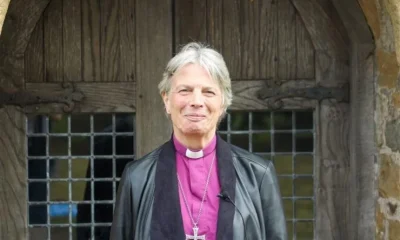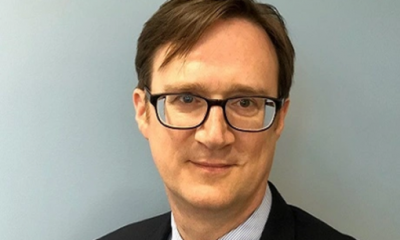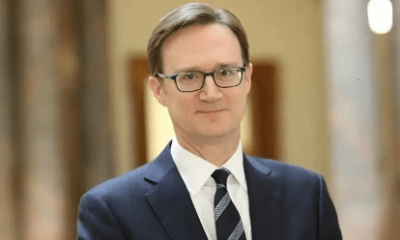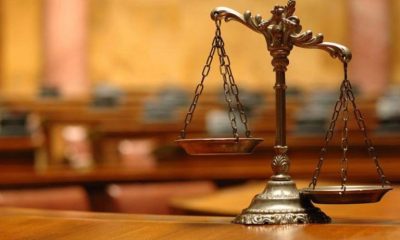News
As Buhari Returns-CityMirrorNews

By Ikeogu Oke
There are those who wouldn’t bear the thought of President Muhammadu Buhari recovering from his illness, returning from his medical leave in the UK and resuming duty as President. A brief journey into cyberspace would prove this, with their posts on some social media platforms affirming it with or without giving reasons for their ill-will.
One of the reasons – for those who bother to give any – is the position the President had taken when the late President Umaru Yar’Adua was in a similar situation to his, having travelled abroad for medical reasons, a journey from which, unfortunately, he did not return alive.
They remind us that President Buhari, then a serial contestant for Yar’Adua’s position, the Presidency, had insisted that the best thing was for the latter to be impeached, having become incapable of discharging his duties as President due to illness.
Well, I think that was harsh of Buhari, whom experience would have made wiser with the lesson that anyone could become incapacitated by sickness. And that baring the grace of Providence and the dedication of the best doctors giving him the best medical attention in the UK, his story might have ended like that of the “rival” for whose impeachment he had called in a manner reminiscent of hitting a man when he is down.
Then it would seem that, besides spite, those who give this reason are driven by a lust for vengeance, despite their hint that they understand that Buhari’s reaction to Yar’Adua’s incapacitation due to ill-health was inhumane and therefore wrong.
But what I don’t understand is that they seem unaware that it is a more grievous wrong to repeat a wrong deliberately. That to choose to commit the same sin against Buhari that he had committed against Yar’Adua is a worse moral violation than the original sin. And I would like to be contradicted on this by any of them who, being incapacitated by sickness as a public servant, would prefer people wishing for them to vacate their office or be ejected from it, or for their death, rather than their recovery, whatever their past or current sins or shortcomings.
Any of them who would rather that the admonition to do to others as we would have them do to us – found in the scriptures of the ten major religions, including Christianity and Islam – applies to them as a death wish in a time of illness may indeed contradict me.
The bitter and divisive politics prevalent in our country, on the crest of which Buhari rode to power and apparently stoked with some of his unfortunate remarks – recall the one about his being voted by 97 percent and 5 per cent of sections of the electorate and his hint of his wish to reward them accordingly – which portray him as an ethnic champion rather than a statesman, is a plausible reason for such strong antipathy towards him.
But it is a reason that falls short of being a justification. Rather, like the reason of what Buhari said about Yar’ Adua, it would only create a vicious cycle for the perpetuation of hate-driven calls for regime change that may be injurious to our country if adopted as a justification for such calls. And unless we terminate the insidious emergence of this vicious cycle in the present times, we may be creating a situation where political adversaries of our leaders would constantly seek to profit from such calls for the precipitate termination of their tenures when they fall sick, worsening the resultant tension as we now have in our country, even as it is hard to determine which leader would fall sick and be incapacitated as a result in the future.
But more important than the foregoing are the lessons Buhari may bring back with his return and if he would put them to use, as one would expect of him, in improving himself and our country as a leader.
Would he, for instance, act with the sobriety expected of a survivor of what appears to be a near-death experience to unite our country and govern it with a sense of equity rather than instigate divisiveness and treat it – as some of his detractor allege, and not entirely without justification – as a conquered fiefdom for his ethnic group, exhibiting triumphalist attitudes?
Would his long sojourn abroad for medical care, as the President of “the giant of Africa”, strike him as a compromise of his and our country’s dignity, and a mockery of rationality, especially considering the trillions in the 2017 budget for the Aso Rock clinic to which he should have unfettered access? Would the fact that other self-respecting leaders (like him) of other self-respecting nations (like ours) would consider such a journey a humiliation inspire him to strive to improve our health sector in order to prevent a repeat of such journeys, if only to save some of us the anguish of imagining our President “like a patient etherized upon a table”, to adopt an image from T. S. Eliot’s “The Love Song of J. Alfred Prufrock”, and left at the mercy of foreign scalpels, especially those of our colonial masters from whom we are supposed to have gained our independence more than 56 years ago?
Would he return, having won a long and difficult fight to keep his own life, which apparently underscores his appreciation of the value of life, show more dedication to securing the lives of all Nigerians in fulfillment of his constitutional mandate, not only by seeking to end the menace of Boko Haram in the Northeast but also that of the alleged Fulani herdsmen known to have spread murder and carnage in the middle belt and the southern parts of our country? Would he, in addition to genuinely seeking to end the menace of the herdsmen, ensure that the perpetrators are identified and brought to book, bearing in mind that leaving such killers at large is tantamount to spreading terror?
Would he, in all, dedicate himself to bringing real development to our country in an evenhanded manner that reverses the impression of his provincialism that threatens to blight his legacy?
Perhaps Buhari’s long medical sojourn abroad would vindicate Shakespeare saying in Hamlet that “there is nothing either good or bad, but thinking makes it so” if he returns from it with a genuine commitment to provide good leadership for all Nigerians regardless of their ethnicity, religion and the percentage of votes he received from their states or ethnic groups.
With half of his four-year tenure already gone, he is running a race against time
*Oke, a poet and public affairs analyst, lives in Abuja.




















